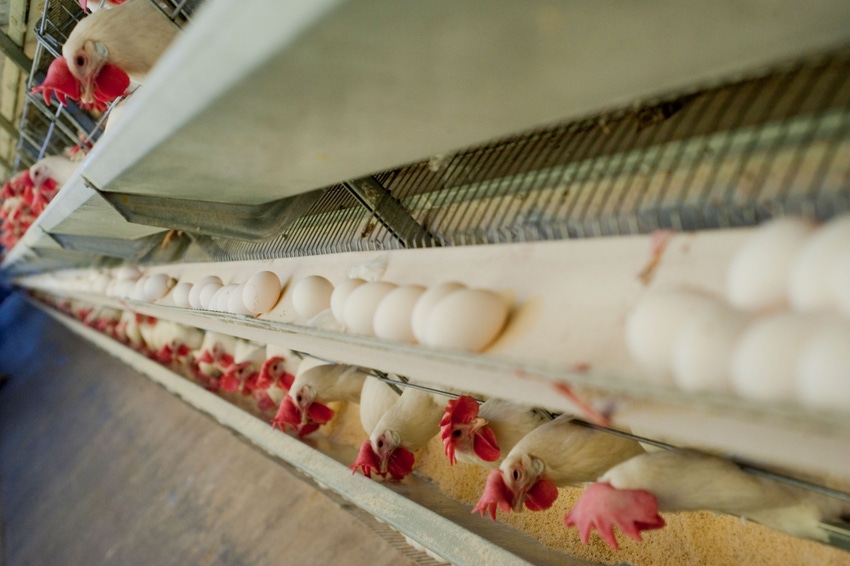Avian flu hits large egg laying operation, more turkey farms
Number of birds in U.S. affected by virus in 2022-2023 nears 68 million.

A large table egg laying flock of 1.6 million birds in Sioux County, Iowa, is being depopulated after highly pathogenic avian influenza (HPAI) was detected. Combined with numerous turkey operations reported over the last week, USDA’s Animal and Plant Health Inspection Service (APHIS) data shows the number of U.S. birds affected by the 2022-2023 HPAI outbreak now totals 67.74 million birds.
Nebraska Department of Agriculture also reported the virus in a small backyard flock, causing the state to issue a reminder to poultry producers to remain vigilant.
“While Nebraska hasn’t had any reported cases of HPAI for a few months, we are disappointed but not surprised, to see another case, as there have been several confirmed HPAI cases in surrounding states,” said Nebraska State Veterinarian Dr. Roger Dudley. “Poultry producers need to continue to be vigilant in protecting their flocks. It’s important for producers to know the signs and symptoms of HPAI and to continue to practice good biosecurity measures to help prevent the spread of this disease into their flocks.”
Other states reporting recent cases include Minnesota, North Dakota, South Dakota, Washington, Oregon and Wisconsin.
HPAI is a highly contagious virus that spreads easily among birds through nasal and eye secretions, as well as manure. The virus can be spread in various ways from flock to flock, including by wild birds, through contact with infected poultry, by equipment, and on the clothing and shoes of caretakers. Wild birds can carry the virus without becoming sick, while domesticated birds can become very sick and die.
Symptoms of HPAI in poultry include a decrease in water consumption; lack of energy and appetite; decreased egg production or soft-shelled, misshapen eggs; nasal discharge, coughing, sneezing; incoordination; and diarrhea. HPAI can also cause sudden death in birds even if they aren’t showing any other symptoms. HPAI can survive for weeks in contaminated environments.
About the Author(s)
You May Also Like





